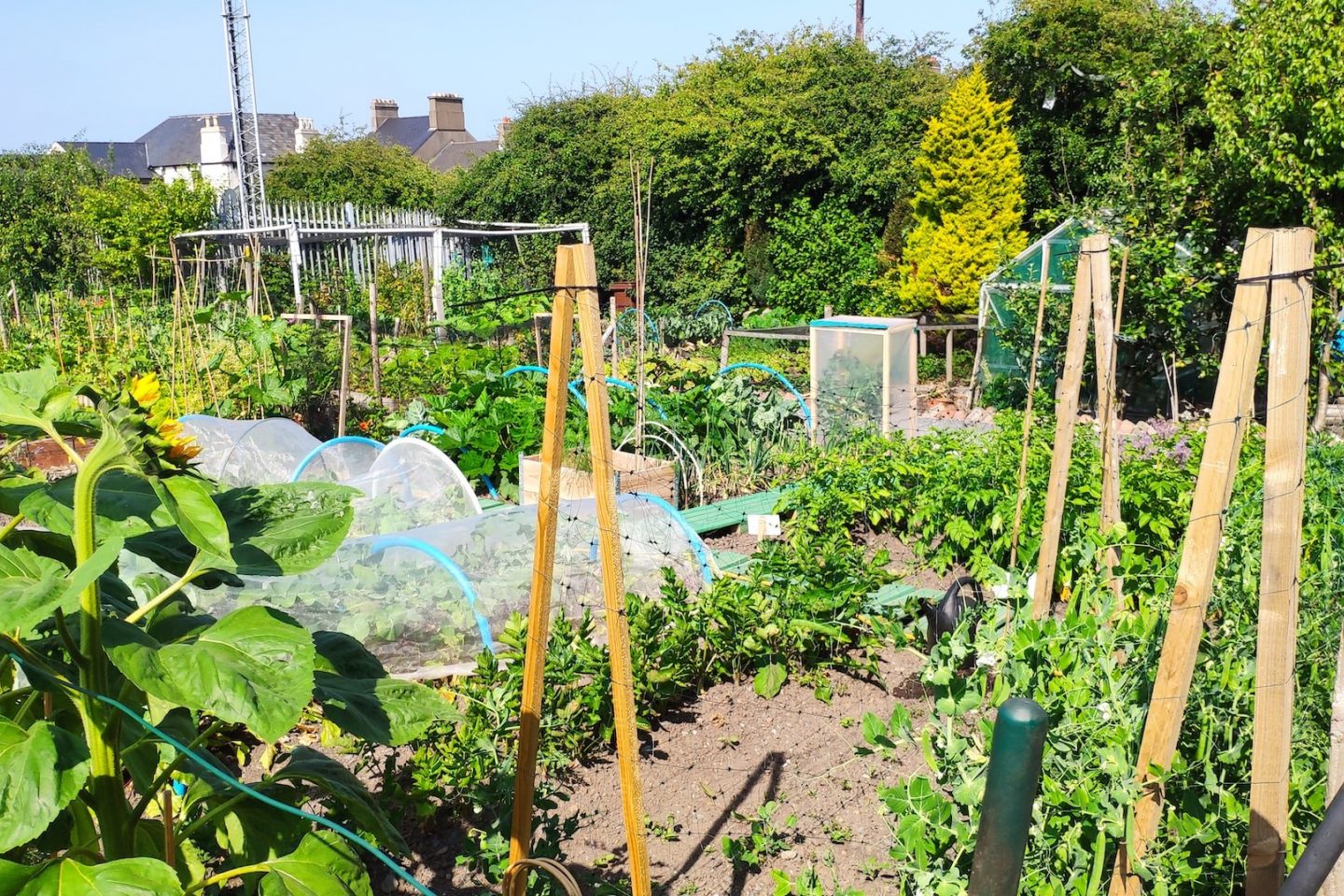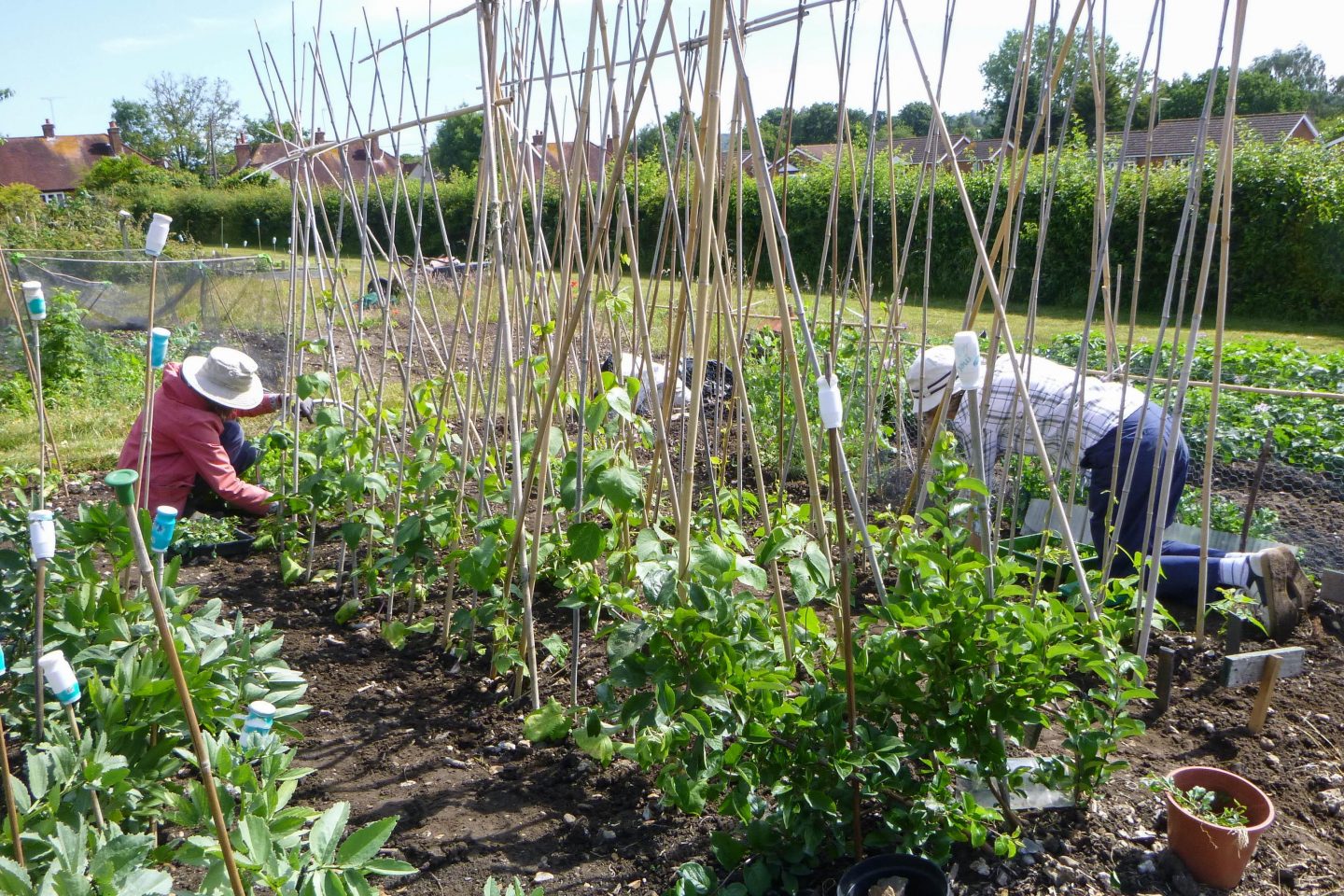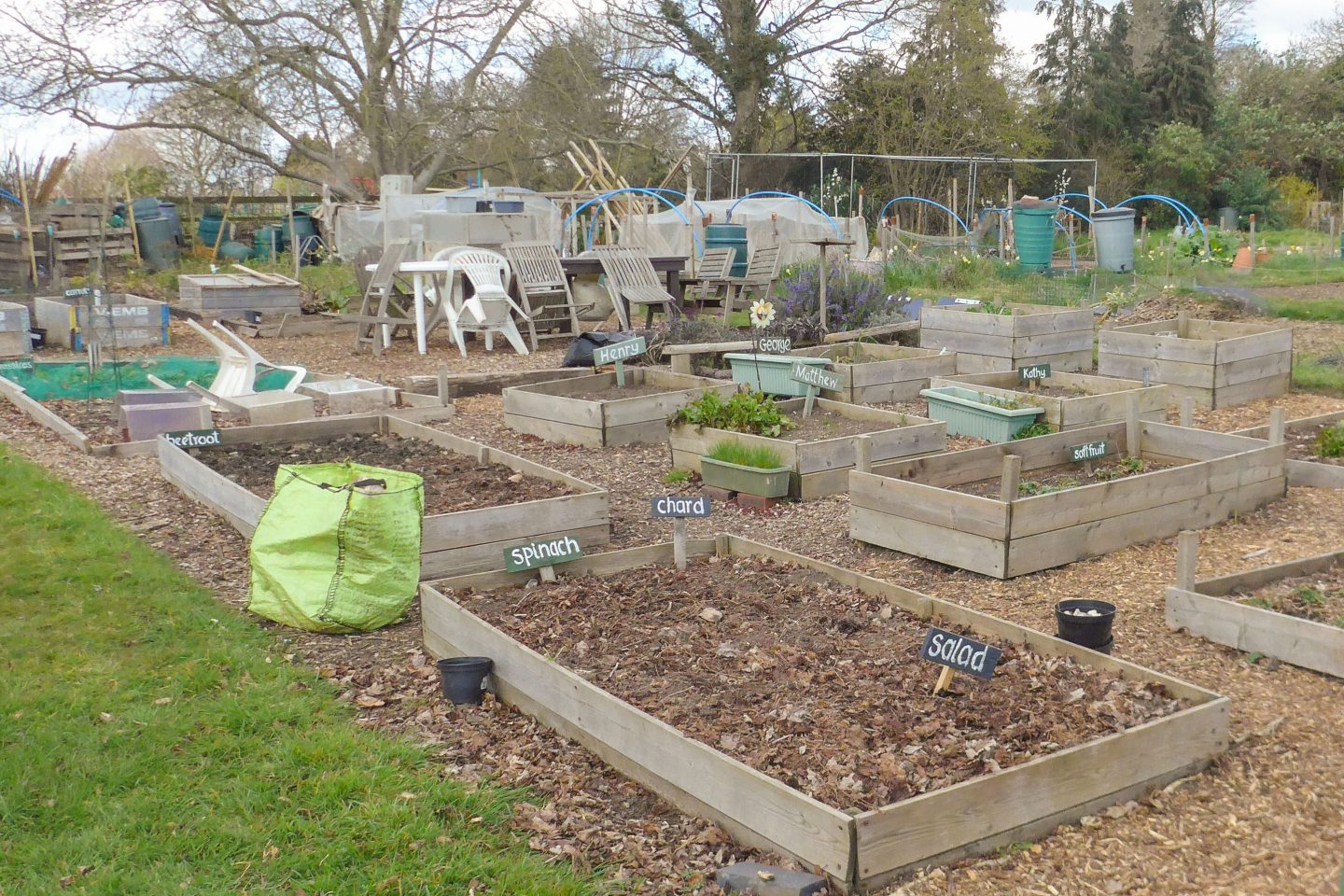

The physical benefits of regular sessions of gardening help support the physical health and fitness of allotment gardeners. Digging, raking or turning the compost are all forms of aerobic exercise. Tending your plot can help keep your body flexible and build muscle strength as you stretch, bend, lift, pull and push.
Gardening can also help to improve speech, cognitive and motor skills for people with debilitating illnesses. Simple exposure to the sun brings positives too as sunlight can increase vitamin D levels and lower blood pressure.
I live in a flat now, with no garden, but I have an allotment. There’s always lots of clearing and digging to be done, so it’s a good way of keeping fit.
Mark
Physical exercise also contributes to our mental wellbeing. Allotment gardeners will tell you that time spent on their plots sowing, weeding and nurturing plants makes them feel calmer and less anxious.
For many people, their allotment plots became a place of sanctuary for them during the COVID-19 pandemic and continue to be so today.
Gardening gets you out of your negative headspace. It’s being outside and working with the soil, with its anti-depressive qualities, and having something to nurture.
Abi
The proven mental health benefits of spending time outdoors are increasingly being heeded and a recent study by academics at the University of Sheffield outlined the wellbeing benefits of allotment gardening. The 163 volunteers recorded 'high levels of social and community activities, including the sharing of surplus food produce, knowledge exchange, awareness and interaction with wildlife, emotional connection to their allotment, appreciation of time spent outside and aesthetic delight in the natural world'.
According to Miriam Dobson, one of the report’s authors, there was quite a wide spectrum of mental health benefits. People 'were talking about community events, the nice feeling of sharing food, knowledge and skills’, as well as a ‘connection to seasons and a joy in weather’.

With loneliness a growing issue in the UK, allotments offer a warm and welcoming community. Whilst for some people, gardening may be something they like to do peacefully and alone, it is also an activity which can be enjoyed as part of a community. Allotments offer people the opportunity to enjoy both. It gives you your own private space to relax, switch off and enjoy some down time as well as the chance to meet new people, some of whom you may form friendships with, share gardening tips and advice and swap plants and surplus produce.
Coming together with fellow allotment gardeners isn’t always about connecting with people who are similar to you – instead it’s more about connecting with people who have a shared passion for gardening.
It’s very sociable. We all know one another at the allotment and we swap seeds and produce.
Mark, Thrive gardener
Not only do allotments open up opportunities for you to meet and connect with people, they’re also a great way of spending time with nature and being able to encourage, observe and enjoy wildlife. Having an allotment, in an urban area in particular, allows you to feel connected with nature and wildlife.
According to the National Allotment Society, 1sq m of land can support hundreds of different species of wildlife. So, by cultivating an allotment, you are helping to create much needed habitats for bees and other wildlife without which our ecosystem would suffer.
Allotments are also a good way to get the rest of the family - especially children – outdoors and enjoying the fresh air and instilling this connection with nature in them.

With the cost of living continuing to rise and food prices increasing, allotment gardening offers a cost-effective way of putting food on the table. If managed properly, an allotment can produce enough food to supplement a family's weekly shop with fresh fruit and vegetables throughout the year.
Allotment gardeners can choose to garden organically and avoid ingesting chemicals that are likely to be present on shop bought fruit and vegetables. People who have allotments are also more likely to get their five-a-day fruit and vegetables than people who don’t grow their own food.
Being able to grow your own tasty produce and provide for yourself, your family and your community promotes a great sense of fulfilment. The satisfaction of eating something you've grown yourself is hard to beat as well as knowing exactly what you're eating, where it's come from and how long it's travelled!
If you don’t currently have an allotment and would like to find out more about if there’s an allotment group or society close to you, below are some useful links to help get you started: